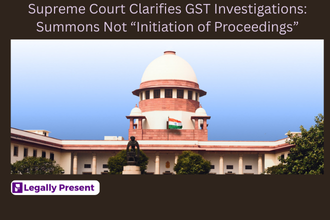In a significant step towards advancing transgender representation in higher education, the Kerala High Court has issued an interim order directing the Bar Council of India (BCI) to approve two additional seats for transgender students in all law colleges across Kerala. The Court emphasized that the issue of providing educational access to transgender persons cannot be delayed indefinitely and must be addressed with urgency and sensitivity.
This directive came while hearing a petition filed by a transgender woman seeking reservation and a separate rank list for transgender candidates applying to law colleges in the State. The case is titled Esai Clara v State of Kerala & Ors.
Background of the Case
The petitioner, a transgender woman, had appeared for the Kerala Law Entrance Examination (KLEE) 2025 seeking admission into the five-year integrated LLB course. Although she successfully qualified and secured a rank, she was denied admission to the Government Law College, Kozhikode. The reason — no separate category or reservation existed for transgender candidates in the central allotment list issued by the Commissioner for Entrance Examinations (CEE).
This prompted the petitioner to approach the Kerala High Court asserting that:
- The failure to provide reservation to transgender students violates Fundamental Rights under Articles 14, 15 & 21 of the Constitution.
- The denial also goes against the Supreme Court’s landmark judgment in NALSA v. Union of India (2014), which recognized transgender persons as a third gender and directed governments to ensure affirmative measures.
- It contravenes the Transgender Persons (Protection of Rights) Act, 2019, which mandates equal opportunities in education and prohibits discrimination.
Kerala Government’s Proposal and BCI’s Delay
On August 6, 2025, the Kerala government forwarded a proposal to the Bar Council of India seeking approval to create two additional supernumerary seats in every law college in the State specifically for transgender candidates.
However, the BCI informed the Court that the proposal was referred to the Standing Committee for Legal Education, which concluded that final approval must come from the General Council of BCI. Since the Council had not scheduled a meeting and could not specify when it would convene, the matter remained in limbo.
High Court’s Observations and Interim Order
Justice VG Arun, while pronouncing the interim order, held that:
“The issue cannot wait endlessly for the General Council of the Bar Council to meet.”
Acknowledging the fundamental nature of the petitioner’s claim and the constitutional imperative of equal opportunity, the Court directed:
- The Bar Council of India must approve the Kerala Government’s request within 10 days of receiving the order.
- The matter will be taken up next on November 6, 2025.
This interim direction ensures that transgender aspirants will not lose the academic year due to administrative delays.
Legal Significance of the Order
This order marks an important development in the movement for educational inclusion and affirmative action for transgender persons in India. Its importance lies in several dimensions:
1. Reinforcement of the NALSA Judgment
The Supreme Court in NALSA (2014) directed both Central and State governments to treat transgender persons as a socially and educationally backward class and extend reservation benefits. The Kerala High Court’s directive aligns directly with this constitutional mandate.
2. Recognition of Transgender Rights Under the 2019 Act
The Transgender Persons (Protection of Rights) Act, 2019 guarantees equal access to education and prohibits discrimination. The denial of a seat, despite qualification, clearly violated this statute — a point the Court acknowledged.
3. Setting a Precedent for Other States
This decision could encourage other states to implement similar reservation or supernumerary seat models in professional colleges, including medical, engineering, and management institutions.
Representation and Advocacy
The petitioner was represented by a team of advocates including:
- Raghul Sudheesh
- Unnikrishnan S Thandayaan
- Umadevi M
- Ambily T Venu
- J Lakshmi
The Bar Council of India was represented by standing counsel Rajit, while the State was represented by State Attorney N Manoj Kumar and Senior Government Pleader PG Pramod.
Their submissions helped the Court examine the matter from a legal, constitutional, and administrative perspective.
Broader Social and Educational Impact
Education plays a vital role in empowerment, visibility, and social mobility. Transgender individuals in India often face:
- Stigma and discrimination
- Economic marginalization
- Barriers to accessing educational institutions
Providing dedicated seats and a supportive admission framework helps ensure:
- Increased participation of transgender persons in professional fields
- Improved representation in legal academia and practice
- A more inclusive and diverse justice system
Kerala has historically led social reforms, and this move further strengthens its position as a progressive state prioritizing dignity and equality for all.
Conclusion
The Kerala High Court’s direction to the Bar Council of India is more than an administrative instruction — it is a reaffirmation of constitutional morality, equality, and human dignity. By ensuring two additional seats in every law college for transgender students, the Court has taken a decisive step toward a more inclusive legal education system.
As the nation moves forward, this order may inspire policy changes across states, contributing to a more just and equitable society.
Also Read
“We Cannot Decide History”: Delhi High Court Refuses to Entertain PILs Against The Taj Story Film
Can Rape Case on False Promise to Marry Be Settled Amicably? Supreme Court Says Yes


